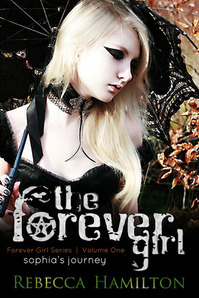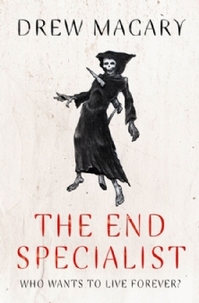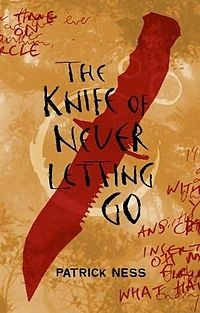|
The Web is full of lists detailing fantasy clichés to avoid. Some of those lists have so many different items on them that it would be simply impossible for a writer to avoid them all – and, of course, there's a fine line between the clichéd and the pleasingly familiar. All genre fiction, by definition, contains a certain amount of cliché, and it's not so much what you do as how you do it … but I digress. Because the point of this post, the first in an intended series, is to examine a common fantasy cliché and consider what it is, why it exists and whether it can still work in current fantasy literature.
So to kick off, I've picked the mother, father and perhaps entire ancestry of all clichés: the Chosen One. We're all familiar with it as a plot device: ordinary person discovers he (or she, but it's usually a he) is the one person who can defeat the forces of evil. Think Harry Potter. Think Rand al'Thor. Think Neo from The Matrix. There's usually prophecy involved, noting the signs by which the poor sap can be identified; typically these culminate in the prediction that to defeat evil, the Chosen One must also die himself. (Though as we all know, foretelling is a tricksy business, and frequently it turns out that the prophecy can be read in another way that means our hero isn't doomed to die after all. Which keeps everyone happy.*) The main thing to note about the Chosen One cliché is that it tends to go hand in hand with a simplistic good-versus-evil morality structure. You can't have someone destined to save the world without also having someone or something it needs to be saved from. Where there is a Chosen One, there is also a Dark Lord. And although there may be shades of grey layered on top, the foundations of this type of plot remain black and white. There's never any doubt who you're meant to cheer for. I'm not saying there's anything wrong with this. Despite the cliché, people like stories of good versus evil. They like reading about characters who turn out to be special in some way. And, after all, it's hard to get away from this cliché altogether. A POV character will inevitably be involved in whatever great events the story concerns – to the extent of playing a key role in their resolution – because otherwise he or she wouldn't be a POV character. No-one wants to read about a character who sits at home twiddling their thumbs whilst life goes on elsewhere. But the Chosen One is more than that. The Chosen One is drawn in not by choice, but by destiny. I think it's here we see both the main interest and the main drawback of this cliché. Personally I always enjoy reading about a character who is forced to accept a role greater than they could have imagined: how they come to terms with their own importance and the burden of a vast responsibility they didn't ask for. Yet at the same time, that's just it. They didn't choose it. As soon as words like fate enter the picture, an element of free will leaves. And maybe even more interesting than the man who is forced to accept his foretold role as the saviour of the world is the man who has no such guarantee that he will prevail, but sets himself against what he perceives to be evil anyway – not because a prophecy said so, but because he believes it's the right thing to do. * Except, presumably, the forces of evil.
1 Comment
They say you can't, but they're clearly wrong. I judge books by their covers all the time – in the library, in shops, on other people's shelves. It's one area where my Kindle just can't give me the same experience as the real thing. A good cover is like walking into a hotel room and finding a freshly made bed with one corner of the quilt turned back: it invites you to climb inside. A bad cover, on the other hand, is like walking into the same room and finding a bed that someone else has just slept in: it leaves you with no desire to linger. I hate to say it, but this is where self-published books often fall down. Authors tend to assume they can do everything, but the truth is that designing the cover is as much a specialist skill as writing the book in the first place. The font, the image, the layout: get any of them wrong, and your cover will look amateur. And if there's one thing a self-published author doesn't want, it's to look amateur. Personally, if I don't like a book cover, I'll probably ignore the book. And if I think a cover looks unprofessional, I tend to assume what's behind it is unprofessional as well. You can write the best book in the entire universe, but if the cover looks like it was knocked up in two minutes using Photoshop, no-one will ever know how great you are. So what makes a good cover? I can only base this on my own preferences – because, of course, no matter how professionally done a cover is, there'll always be some people who don't like it – but here are some recent covers from publishers both large and small that really stood out for me.  The Forever Girl by Rebecca Hamilton I love this cover. I really do. The image is striking, chosen perfectly to appeal to the target audience. The font used for the book title is unusual and has some beautiful graphic touches. The whole thing gives a great flavour of what the book is about. If I saw this cover on a shelf in a store or library, I'd definitely pick the book up.  The End Specialist by Drew Magary In contrast to the last cover, this one is very minimalist. But the single image of the Grim Reaper being slain raises all kinds of intriguing questions (plus as it turns out, the same image is referred to in the book itself, which is always a nice touch). I like the font, as well – it adds to the illustrative, almost calligraphic effect. Rather like Japanese art, its very simplicity pulls me in.  The Knife of Never Letting Go by Patrick Ness I may be biased on this one, because I love the book so much. But there's an awful lot to like about this cover: the graffiti-like title, the scribbled confusion of text at the sides (which again turns out to mean something), the violent red slash of the knife across the whole thing. It's not obvious what the book is about, but the cover has a real atmosphere to it that makes me want to find out. What are some of your favourite recent covers? And what makes them good?
I'm currently reading a book – published by a well-respected and long-established publishing house – that I would class as pretty poorly written. It's not bad, in the sense of misspellings and grammatical errors everywhere, but nor does it shine. The prose is pedestrian, frequently verging on dull. The dialogue attribution is littered with unnecessary adverbs (and while I'm not averse to an adverb or two, you do start to notice them when they're used to modify every single speech verb). One of my favourite phrases so far is 'stared desultorily', which suggests to me that neither the author nor the editor understood the meaning of the word 'desultory' and the appropriateness, or otherwise, of applying it to a word so fixed and determined as 'stare'. And given all this, I can't help wondering: what was it about this book that was good enough to get published when so many others fall by the wayside?
The answer, of course, is the concept. Not even the plot – the initial idea. I've read an awful lot of YA books lately, and a large subset of them had two things in common. First, they each belonged to one of the two most popular teen genres at the moment, dystopian fiction or supernatural romance. And second, though none of them were particularly well written, plotted or executed, they all had an underlying concept that was sufficiently interesting for me to have picked up the book in the first place. Which, overall, makes me sad – all these books with so much potential, and yet it's gone largely unfulfilled. Obviously publishers are going to chase trends. I get that. If something is popular then any business is going to want to ride the wave of that popularity while they still can. And because trends are fleeting, and publishing is a lengthy process, perhaps a decision has been taken to reduce the amount of time and money spent on editing. But (and this isn't just because it's my profession) I can't help but see that as a mistake. If traditional publishing houses want to survive in the current world of DIY and ebooks then as well as being more agile, they surely also need to maintain their quality. They have to be able to show that they add value. At present, many people still take the view that it's safer to buy a book from a mainstream publisher than it is from a self-publisher, because they know they'll be getting a certain level of polish. But with self-publishers becoming more savvy, that gap is closing. Which means the one thing traditional publishers can't afford is to churn out second-rate books just to cash in on a trend. It's that kind of thing that will start people questioning what they're for. Having said all that, I suspect there may be another factor at work: namely, that what writers consider to be good writing isn't necessarily the same as what readers consider to be good writing. Unpublished writers have a tendency to gather in groups of like-minded individuals, where they spend their time getting picky over whether a sentence expressed one way is better than a sentence expressed a slightly different way. They swear religiously by rules like don't use too many adverbs and use one POV per scene. Yet most of the books I've read lately seem never to have come within spitting distance of those rules. And if that's the case, who are the rules for? Do most readers even care about the overuse of adverbs? Do we, the writers, have a duty to stick to our definition of good writing notwithstanding? Or are we just concentrating on the picky stuff as an excuse for why we haven't sold a million copies already, not realising that the publishers are right: concept is key? I don't have answers to any of these questions, but at the very least they're worth asking. |
Archives
July 2016
Categories
All
|
 RSS Feed
RSS Feed
